1. Smooth transmission, low noise:
The tooth profile contact line of the helical gear is an oblique line, so that each pair of teeth is gradually engaged and gradually withdrawn from engagement. This meshing mode effectively reduces shock and vibration, thus reducing noise.
The meshing contact of the helical gear is good, and the length of the contact line is gradually changed during the process of biting in and out, which further reduces the influence of manufacturing error on the transmission and makes the transmission more stable.
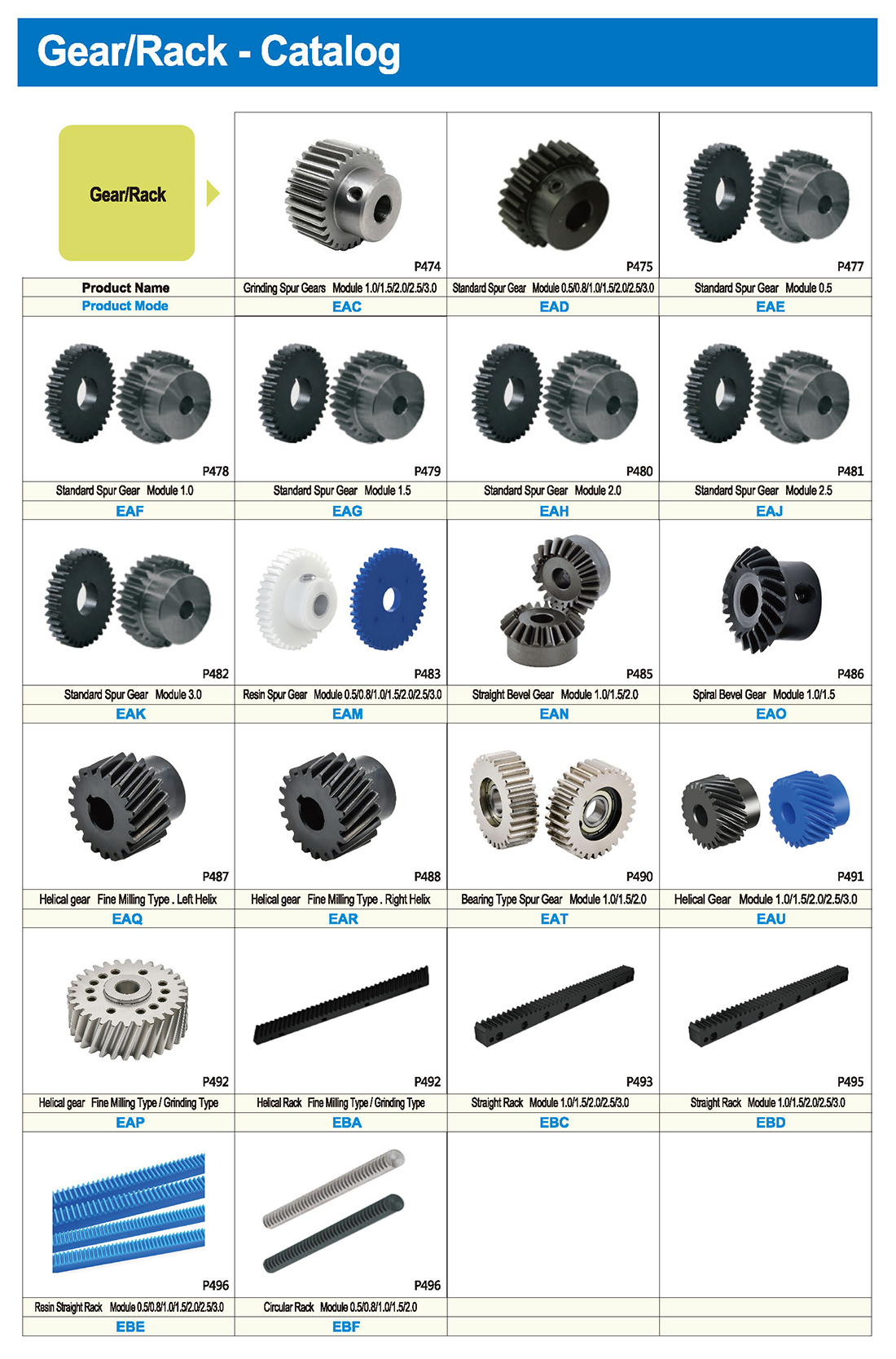
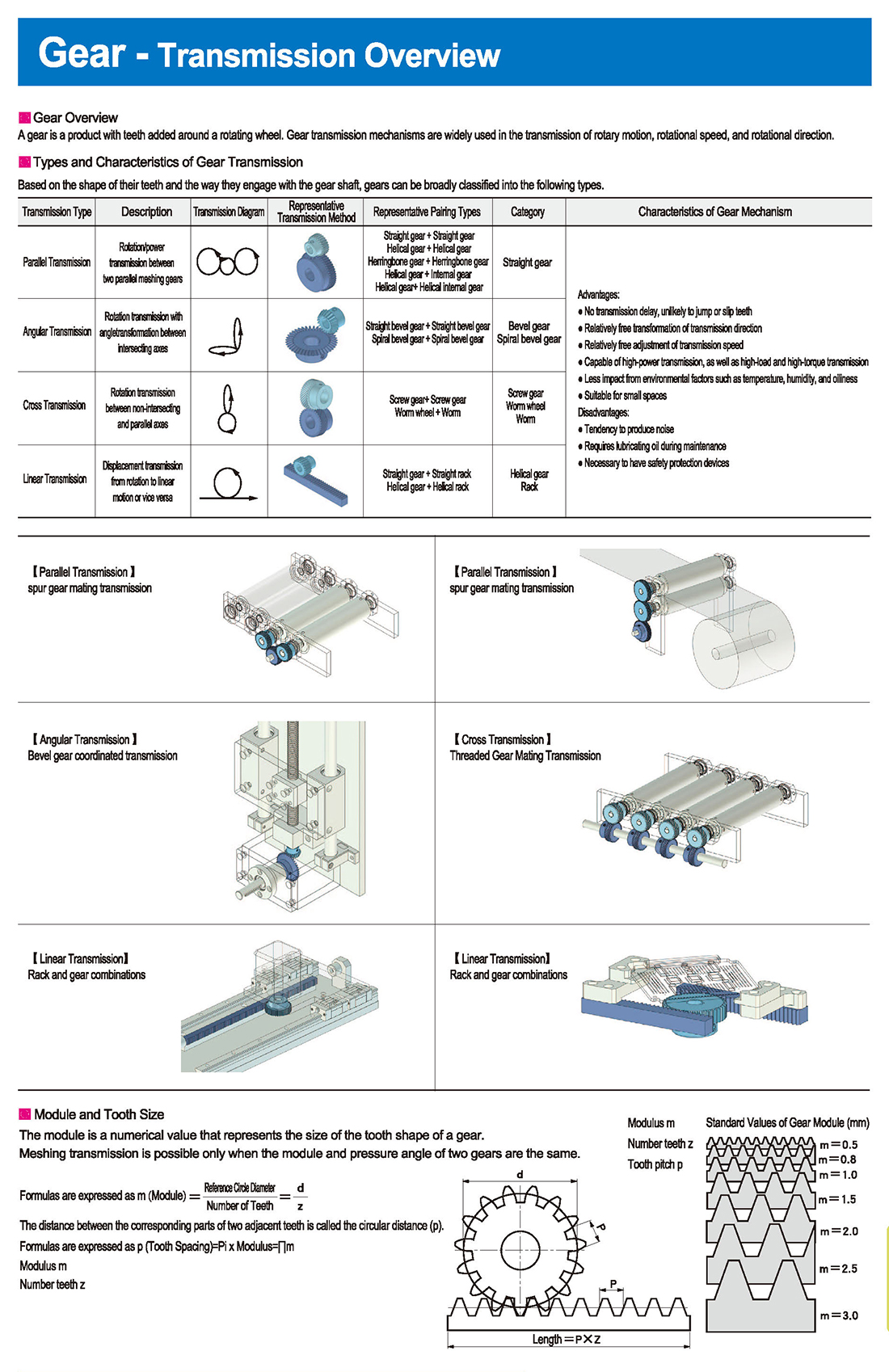
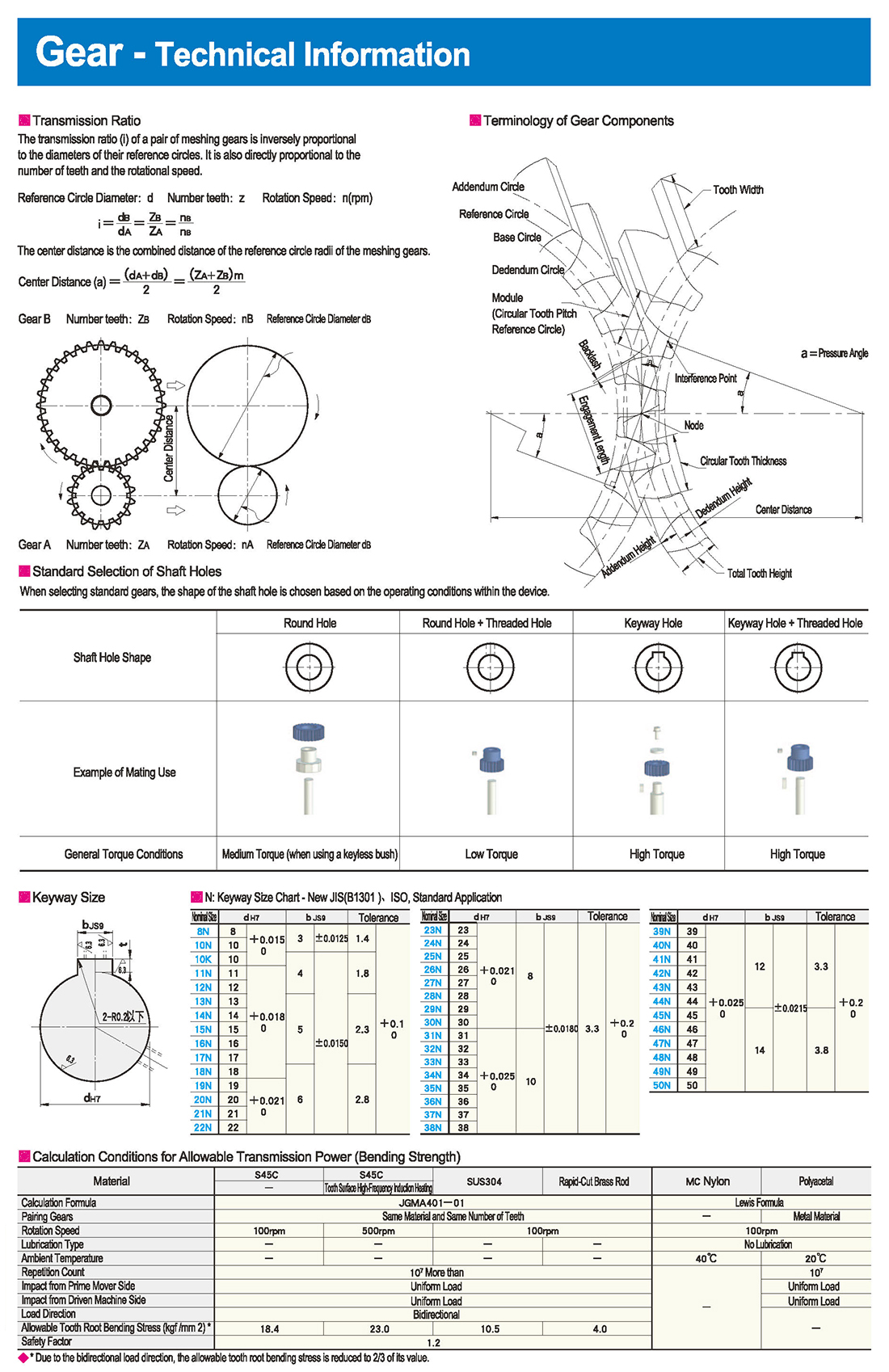
The contact degree of the helical gear is large, not only has the end contact degree, but also the axial surface contact degree. This allows the helical gear to reduce the load per pair of teeth, thereby increasing the load carrying capacity.
With the increase of tooth width and spiral Angle, the contact degree of helical gear will also increase, which further improves its carrying capacity
Types and Characteristics of Gear Transmission
①Parallel Transmission Rotation/power transmission between two parallel meshing gears Straight gear + Helical gear + Internal gear + Herringbone gear + Helical internal gear
②Angular Transmission Rotation transmission with angle transformation between intersecting axes Straight bevel gear + Spiral bevel gear Bevel gear
③Cross Transmission Rotation transmission between non-intersecting and parallel axes Screw gear Worm wheel + Worm
④Linear Transmission Displacement transmission from rotation to linear motion or vice versa Straight rack + Helical rack
Advantages:
* No transmission delay, unlikely to jump or slip teeth
*Relatively free transformation of transmission direction
* Relatively free adjustment of transmission speed
*Capable of high-power transmission, as well as high-load and high-torque transmission
* Less impact from environmental factors such as temperature, humidity, and oiliness
* Suitable for small spaces
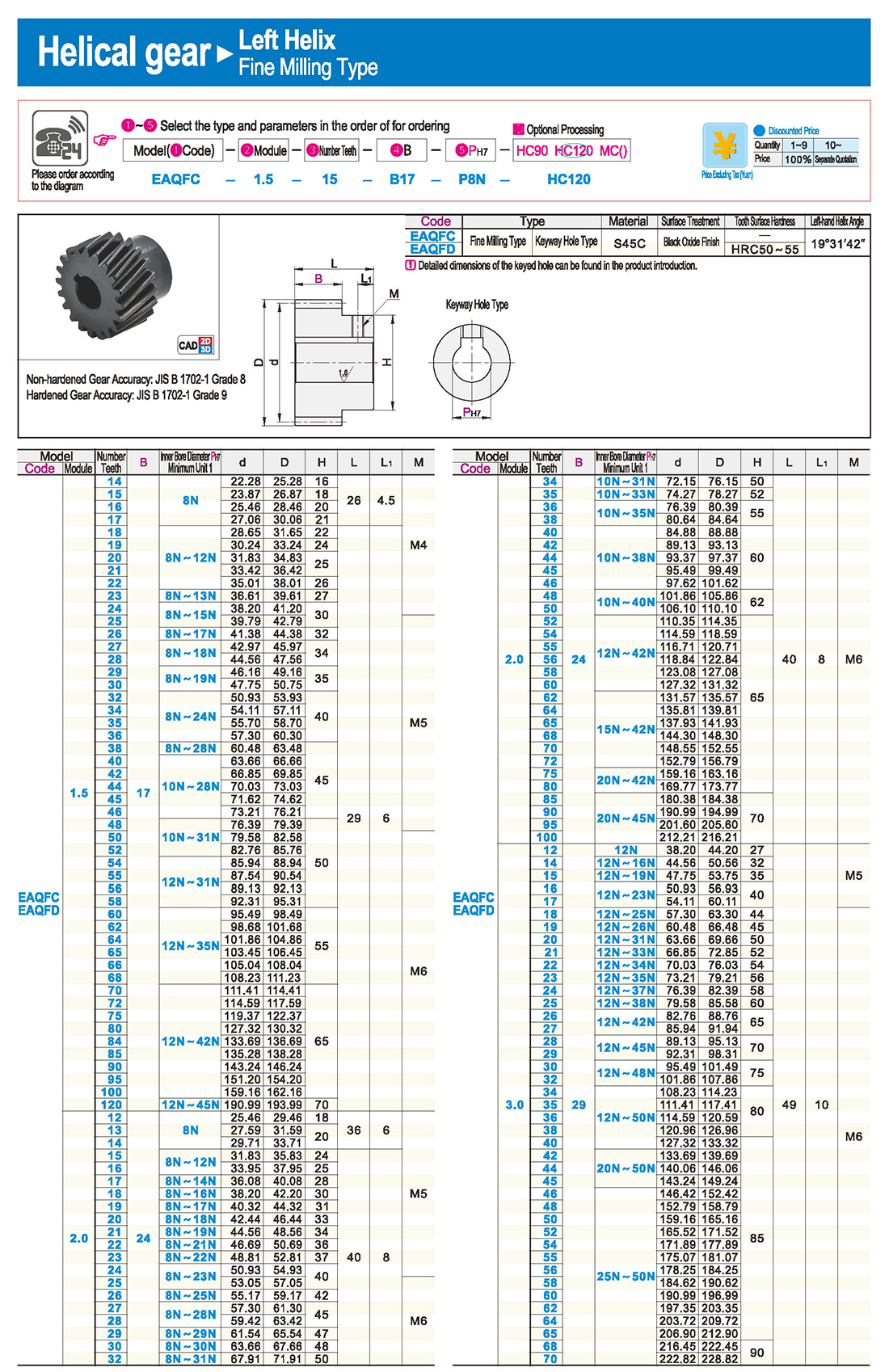
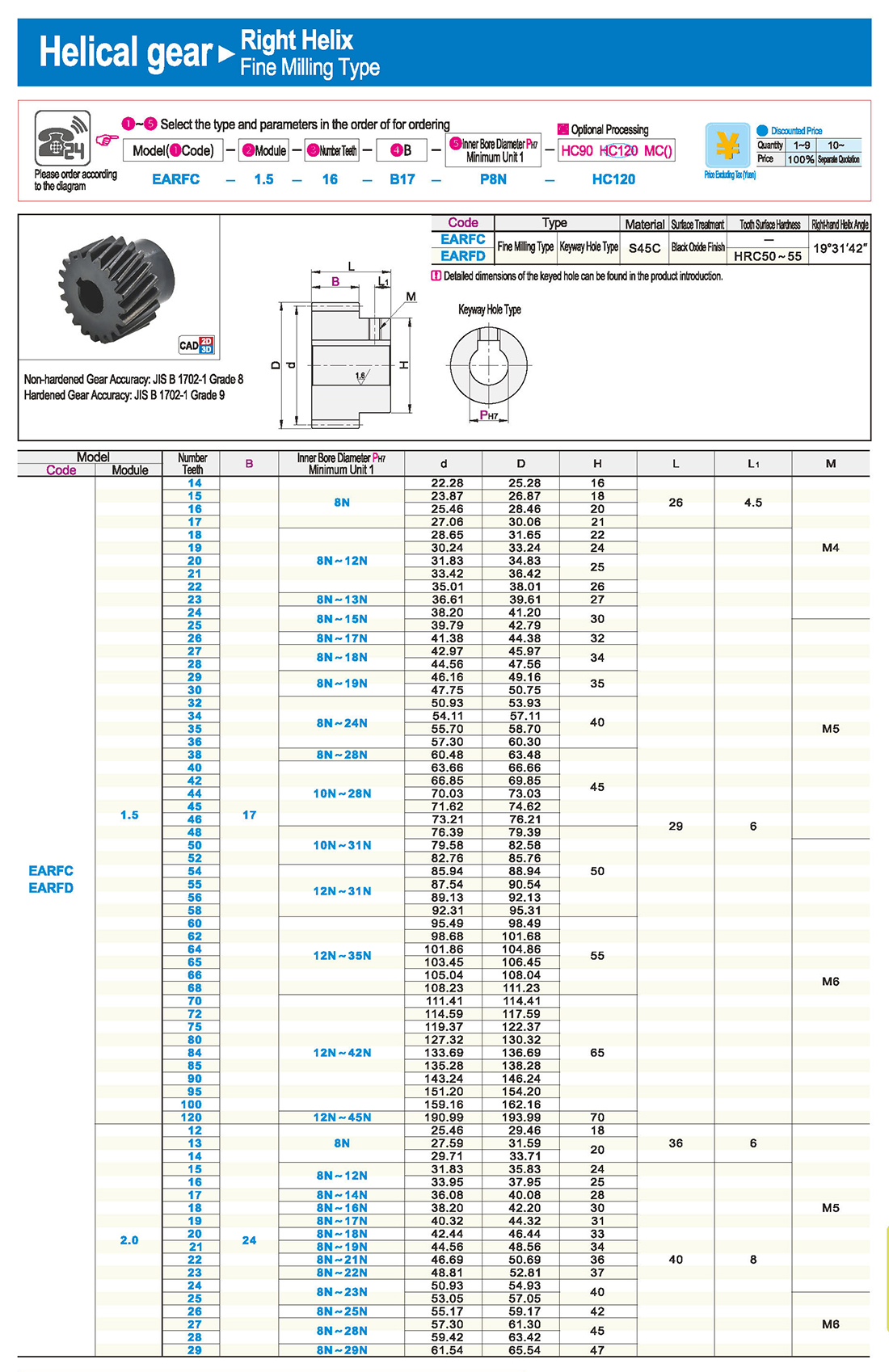
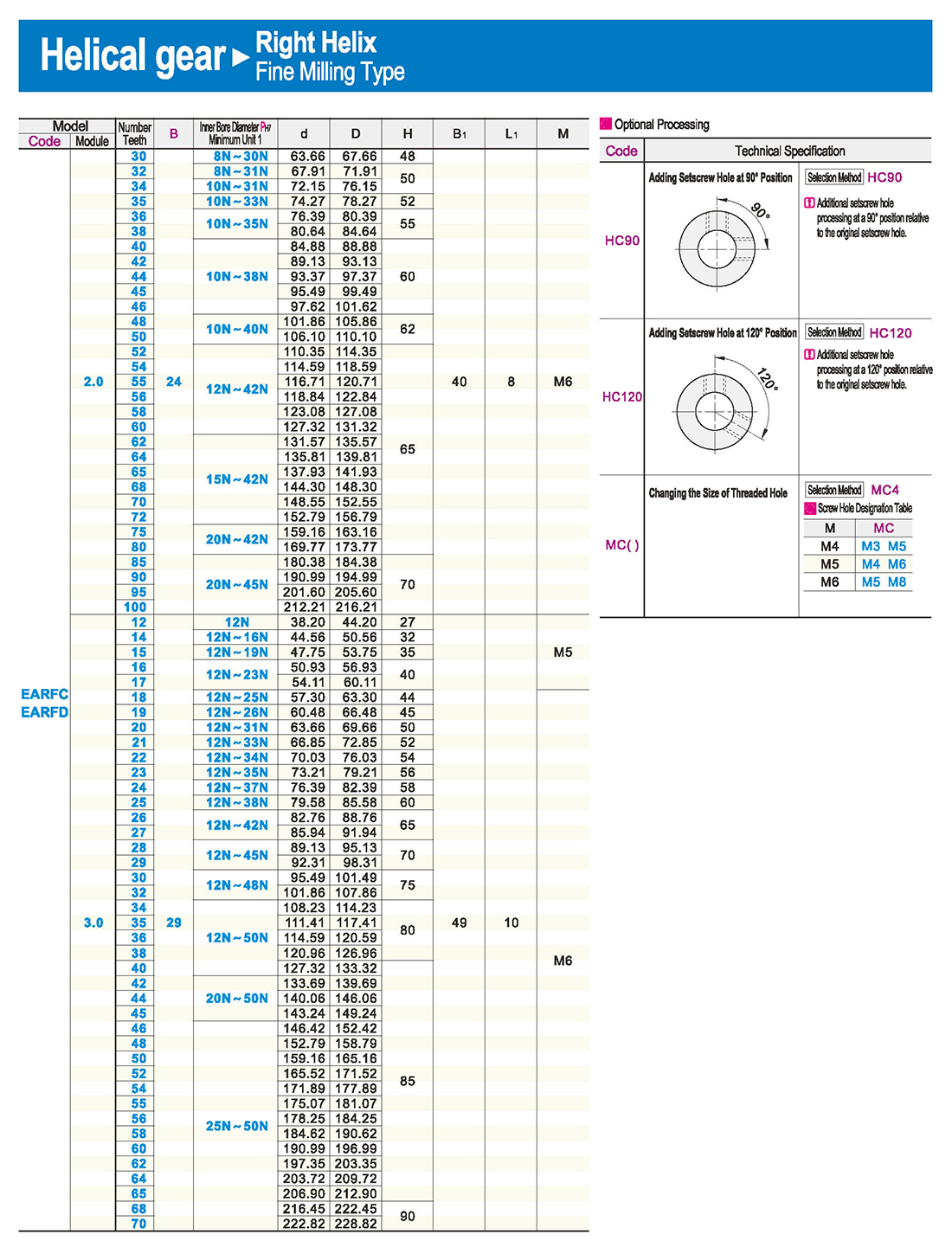


 English
English Russian
Russian Spanish
Spanish Italian
Italian Arabic
Arabic Korean
Korean German
German Japanese
Japanese Vietnamese
Vietnamese Turkish
Turkish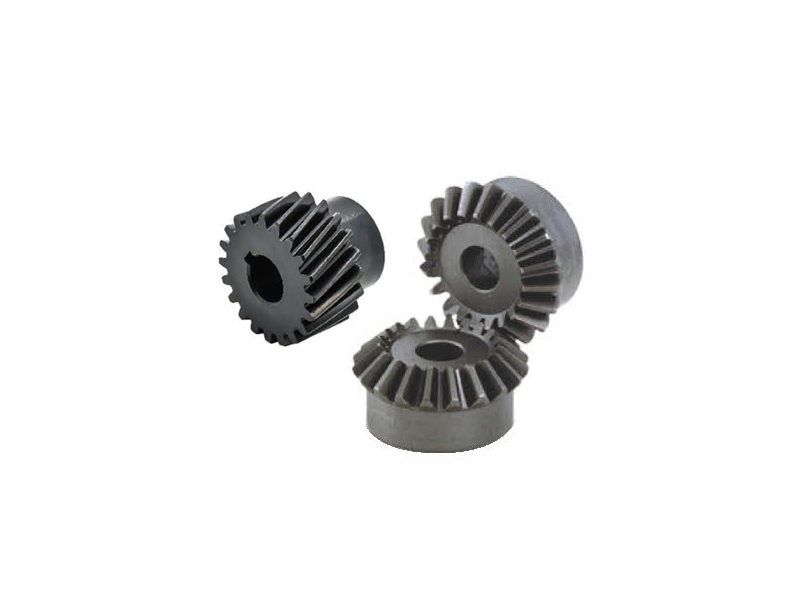
 Introduction
Introduction Specification Table
Specification Table Download
Download






